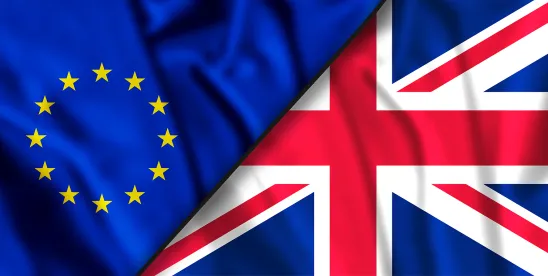This article will examine the evolving attitudes of the United Kingdom (“UK”), European Union (“EU”) and United States (“US”) toward corruption enforcement and will assess whether the UK and EU will be able to plug the potential enforcement gap created by President Trump’s recent Executive Order.
The United States
On February 10, 2025, President Trump issued an Executive Order titled, ‘Pausing Foreign Corrupt Practices Act Enforcement to Further American Economic and National Security’ (the “EO”). As discussed in our previous article, this directs the US Department of Justice (“DOJ”) to pause enforcement of the Foreign Corrupt Practices Act (“FCPA”) for 180 days, while the Attorney General reviews the guidelines and policies governing FCPA investigations and enforcement actions.
The EO does not remove all bribery and corruption risks because, among other things and notwithstanding the temporary pause, it does not apply to civil actions brought by the US Securities and Exchange Commission, it does not repeal the FCPA, and the FCPA’s statute of limitations remains five years, which could run longer that the current enforcement pause. However, the EO, in addition to numerous other Executive Orders (which can be found here), highlights a shift in enforcement priorities under the Trump administration, the full effects of which are yet to be seen.
European Union
While the US has signalled that it is scaling back on enforcement that “actively harms American economic competitiveness,”[1] the EU is demonstrating an increased commitment to robust bribery and corruption enforcement.
On May 3, 2023, the European Commission put forward an anti-corruption package, which included a proposal for a directive focused on tackling corruption. The proposal’s explanatory memorandum described corruption as an “impediment to sustainable economic growth, diverting resources from productive outcomes”. The Council of the EU approved the general approach for the directive on June 14, 2024, and noted that the EU’s current instruments are “not sufficiently comprehensive, and the current criminalisation of corruption varies across Member States hampering a coherent and effective response across the Union.” The Council of the EU said the directive will establish “minimum rules concerning the definition of criminal offences and criminal and non-criminal penalties in the area of corruption, as well as measures to better prevent and fight corruption.”
In addition to potential legislative changes, on March 20, 2025, the creation of the International Anti-Corruption Prosecutorial Taskforce (the “Taskforce”) was announced. The Taskforce, which includes the UK’s Serious Fraud Office (“SFO”), the Office of the Attorney General of Switzerland and France’s Parquet National Financier, issued a Founding Statement, recognizing “the significant threat of bribery and corruption and the severe harm it causes.”[2] The Taskforce seeks to deliver a Leaders’ Group for exchanging insight and strategy, a Working Group for devising proposals for co-operation, increased best practice sharing, and a strengthened foundation to seize opportunities for operational collaboration.
United Kingdom
The UK has also taken positive action to ameliorate its corruption detection and enforcement strategy.
First, the Economic Crime and Corporate Transparency Act 2023, introduced the failure to prevent fraud offence (“FTPFO”), which means that large organizations, wherever located, can be held criminally liable if a fraud offence is committed by an “associated person” for, or on behalf of, the organisation with the intention of benefitting the organization or its clients. The SFO’s Business Plan 2025-26, emphasized that the “deployment of the failure to prevent fraud offence in September will be a landmark moment which will widen the reach and breadth of prosecutions.”[3]
Also included in the SFO Business Plan was an intention to “progress whistleblower incentivisation reform.” Whistleblower incentivization increases the likelihood of reports being made which first reduces corruption by acting as a deterrent but also aids enforcement as an information gathering tool. The Financial Conduct Authority and Prudential Regulatory Authority have previously cautioned against providing financial incentives for whistleblowers, due to concerns over entrapment, malicious reporting, the quality of reports, and the cost-effectiveness of such schemes.[4] This position is at odds with that adopted by the US where, for example, the US Department of the Treasury’s Financial Crimes Enforcement Network has implemented a whistleblower program that incentivizes individuals to report anti-money laundering or sanctions violations. A report by RUSI highlights that US incentivization schemes are so effective, “that US regulators are consistently benefiting from information provided by Canadian and UK citizens.”[5] At his first public speech as director of the SFO, Nick Ephgrave QPM attributed the UK’s change of direction to his intention to concentrate efforts on evidence gathering routes that would lead straight to the evidence and find “smoking guns.” Mr Ephgrave’s intention to adopt a US-style approach suggests the UK may be well-placed to plug any potential enforcement gap left by the US.
On April 24, 2025, the SFO published Guidance on Corporate Co-Operation and Enforcement in relation to Corporate Criminal Offending. This guidance outlines the SFO’s key considerations under the public interest stage of the Full Code Test for Crown Prosecutors when deciding whether to charge a corporate or invite it to enter negotiations for a deferred prosecution agreement. The guidance will make it simpler for corporates to report suspected wrongdoing by a direct route to the SFO’s Intelligence Division via a secure reporting portal.
Finally, on December 12, 2024, the UK Security Minister, Dan Jarvis MP MBE, announced the introduction of a pilot Domestic Corruption Unit (the “Unit”), set up by the City of London Police and the Home Office. The Unit will “bring together the different pieces of the system, such as national agencies, local forces [and] devolved policing bodies” and “lead proactive investigations, providing much needed capacity and a dedicated response in areas where previously this has been lacking”. [6]
Conclusion
The fate of bribery and corruption enforcement in the US is unclear. Instead of spearheading prosecution sand compliance efforts globally, the US appears, at least for the time being, to have taken a step back. However, since before President Trump took office, the EU and UK have been sharpening their enforcement capabilities. Therefore, while Nick Ephgrave QPM has been clear that the Taskforce was not in response to the EO, companies cannot rely on a period of relaxed enforcement on either side of the Atlantic.
[1] The White House, Pausing Foreign Corrupt Practices Act Enforcement to Further American Economic and National Security – The White House ((February 10, 2025)
[2] International Anti-Corruption Prosecutorial Taskforce, International_Anti-Corruption_Prosecutorial_Taskforce.pdf (March 20, 2025)
[3] Serious Fraud Office, SFO_2025-26__Business_Plan.pdf (April 3, 2025)
[4] Financial Conduct Authority, Prudential Regulation Authority, Financial Incentives for Whistleblowers (July, 2014)
[5] Royal United Services Institute, The Inside Track: The Role of Financial Rewards for Whistleblowers in the Fight Against Economic Crime (December, 2024)
[6] Home Office, Working with partners to defeat economic crime – GOV.UK (December 12, 2024)





 />i
/>i
